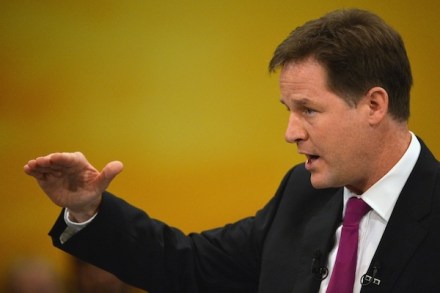Clegg rejects ‘cash-for-seats’ deal for boundaries
Deputy Prime Minister’s questions is quite often a slightly grumpy affair, with Nick Clegg huffing and puffing at irritating questions from Peter Bone about what position he would take in the government if David Cameron were run over by a bus. This morning’s session wasn’t much different: it was even more bad-tempered as backbenchers were keen to pick at scabs on the failure of Lords reform. The Deputy Prime Minister continually defended the Liberal Democrats’ decision to block the boundary reforms, criticising Labour for failing to support the programme motion for the House of Lords Reform Bill. It was like watching a couple who had broken up continue to bicker




















